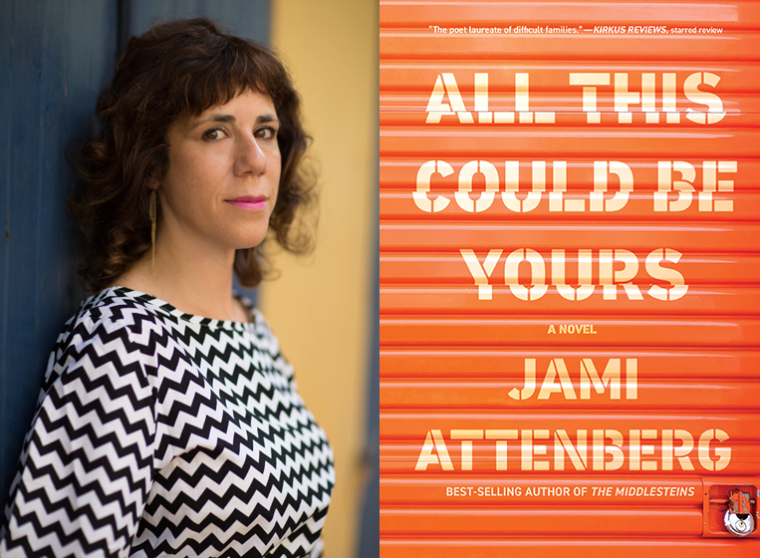This week’s installment of Ten Questions features Jami Attenberg, whose novel All This Could Be Yours is out today from Houghton Mifflin Harcourt. Told from multiple perspectives across several generations, All This Could Be Yours follows the members of a family as they navigate an impending death. When doctors report Victor Tuchman is in his final days, his wife betrays little emotion, his son resists coming home at all, and his daughter, Alex, feels a kind of relief, wondering if her mother will finally tell her about her father’s shrouded criminal past. As the family gathers in New Orleans and the story unfolds, some secrets remain obscured, while others come to light. Neither triumphant nor despairing, All This Could Be Yours maps the ways in which family dynamics are always evolving, with new intimacies and alienations blossoming at unexpected turns. “Attenberg expertly weaves together a chorus of love, betrayal, and inheritance,” writes Hannah Tinti. “Each chapter a prism turned, revealing a new spectrum of secrets.” Jami Attenberg is the author of six other works of fiction, including the New York Times best-selling novel The Middlesteins. Her essays have appeared in various outlets including the New York Times Magazine, the Wall Street Journal, and Longreads. Born in Illinois, Attenberg lives in New Orleans.

Jami Attenberg, author of All This Could Be Yours. (Credit: Zack Smith)
1. How long did it take you to write All This Could Be Yours?
It took about a year from start to finish. About six months to write a draft I could submit to my editor, another three months of edits, another three months here and there through the copyediting process, give or take a few weeks at any point along the way. In general this is usually how long it takes for me to write my books.
2. What was the most challenging thing about writing the book?
The biggest challenge was capturing New Orleans properly. I had only lived here a few years before I started writing the book and I felt extremely responsible toward the city. So most of the research I did—on foot, by car, through interviews—was focused on the city and the region. I was really intent on getting it right.
3. Where, when, and how often do you write?
I tend to write in the mornings, in the front room of my house, by hand. Or sometimes I’ll write in a café. In the afternoons I’ll type up whatever I wrote in the morning, and edit it through that process. When I’m actually in the process of working on a project I work five days a week on it.
4. What are you reading right now?
I’m rereading this poetry collection I read while I was writing the first draft of the book. It’s called Absolute Solitude, by Dulce María Loynaz, a Cuban writer.
5. Which author, in your opinion, deserves wider recognition?
I don’t want to make anyone feel like their career sucks! But in general I want people to read more poetry and graphic novels. I love a lot of stuff Drawn & Quarterly publishes and I’ve read some great poetry collections this year. I read a debut collection called Hoodwitch recently by Faylita Hicks and thoroughly enjoyed it.
6. What is the biggest impediment to your writing life?
The internet.
7. What is one thing that your agent or editor told you during the process of publishing this book that stuck with you?
Well, they always tell me to chill out, but I never listen.
8. What is one thing you might change about the writing community or publishing industry?
I don’t think the most recent wave of #MeToo cleaned enough houses.
9. Who is your most trusted reader of your work and why?
My agent, Doug Stewart, has been my most consistent reader in my life. He is always looking out for my best interests, always on my side. Also he can look at what I’m doing and place it in my entire body of work.
10. What’s the best piece of writing advice you’ve ever heard?
It has changed over the years—how relevant advice is to me and my craft and my career. In college I had a fiction teacher tell me to make every sentence so good that the reader would have to read the next one. So basic and obvious but I needed to hear it. (But that wouldn’t mean much to me now, of course!) I think what’s helpful to me is just to meet with writers I admire on occasion for a cup of coffee and I learn so much just by being around them. We’re a supportive group of people, and when one person succeeds, in the end we all do.







